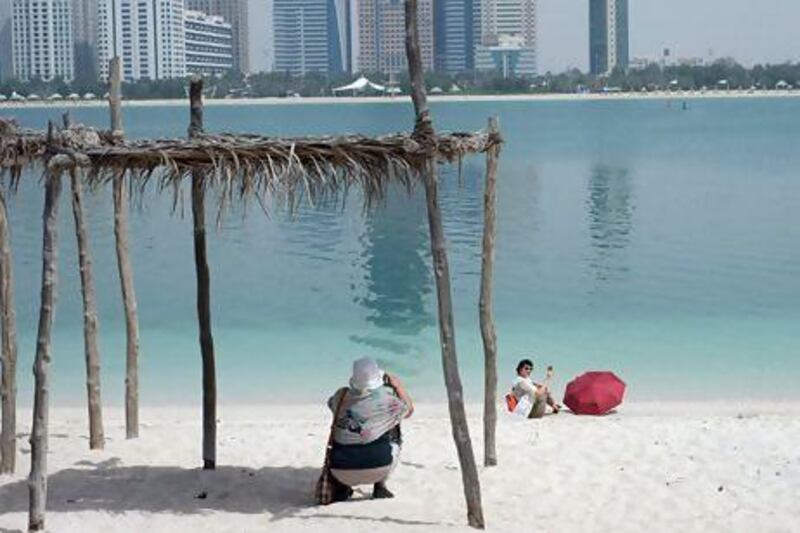Abu Dhabi is gaining popularity among high-spending Chinese tourists.
In the first seven months of the year, Abu Dhabi hosted 23,618 travellers from China in its hotels - a 36 per cent rise over the same period last year, according to Abu Dhabi Tourism and Culture Authority (TCA). The average length of their stay was a little less than two nights.
"The Middle East is always mysterious to Chinese travellers," said Tao Peng, the founder and chief executive of BreadTrip.com, a Beijing-based travel application provider with 3 million users.
The company's software tracks 2,000 to 3,000 travellers going to the UAE every year. He was speaking this week at the Chinese Visitors Summit at the Ritz-Carlton hotel in the capital.
The trend is encouraging more UAE destinations to tailor their offerings for Chinese visitors.
Yas Island has introduced Mandarin and Cantonese speaking tour guides, and some hotels in the city are hiring Mandarin-speaking staff.
"We have noticed an increase in demand from the Chinese [and] in response we recruited Chinese staff in our sales team, a Chinese chef [and] Chinese guest relations [personnel]," said Nancy Nusrally, a public relations manager for Anantara Hotels.
Among its users, BreadTrip.com says shopping and desert explorations are the two most popular activities in the UAE.
The top markets for Chinese tourists remain Thailand, Taiwan and the United States, Mr Peng said.
Chinese visitors spent US$258 million in the Emirates last year, a rise of about 14 per cent from the previous year, according to Visa. A majority of the spending - 85 per cent - went towards shopping, entertainment and hotel stays.
In retail alone, they spent $182m last year, an 11 per cent increase over the last.
"They want to own something as a proof of their rising status," Mr Peng said, referring to the spending habits of Chinese travellers.
The second Chinese Visitors Summit had 63 tour operators or "buyers" from China meeting 68 hotels, ground handling agents, malls and destinations among others, classified as suppliers.
There were tour operators from Beijing and Shanghai as well as secondary cities such as Chengdu and Shenzhen.
"The appetite for luxury of Chinese buyers is matched by Russian tourists, and the UAE is positioning itself well to tap this opportunity," said Rob Nicholas, the managing director at NPI, a co-organiser of the summit alongside Shanghai-based i2i Group.
NPI publishes three magazines in Mandarin, including one that targets Chinese tourists coming to the UAE.
The tour operators from China will organise about five days visiting Dubai and Abu Dhabi's attractions such as Sheikh Zayed Mosque, Ferrari World and the upmarket shops at Avenue at Etihad Towers.
"Besides the regular UAE - five days, three nights - leisure group tour, [Etihad is] working with Ctrip [a Chinese travel agency] to develop new tour patterns to include the UAE into popular, multi-destination tours," said Mohammed Al Dhaheri, the director of strategy and policy at TCA.
This year, the Chinese tour operators are meeting with representatives from nearby tourist destinations such as Cyprus, Maldives, Mauritius and Seychelles to package Abu Dhabi and the UAE along with these places.
David Feinberg, the chief executive of the Maldives-based Crown and Champa Resorts, says the island country will receive 1.2 million tourists by the end of this year of which a quarter will be from China.





